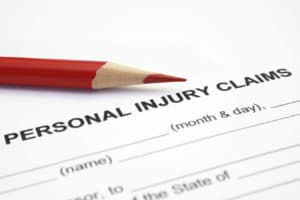
If you are hurt because of someone else’s conduct, then you might have a negligence claim. A successful negligence claim will result in money for your injuries and other harm.
One of the things that you must prove to win your negligence case is causation. You have to prove that the responsible party is actually responsible for causing your injury.
Here’s what that means, how it’s proven, and why it’s important to turn to a lawyer for help.
Table of Contents
Standard Elements Required in a Personal Injury Case
The most common personal injury claim is negligence. To win a negligence claim, you have to prove four main legal elements.
These elements are:
- Duty
- Breach
- Causation
- Damages
A duty is a legal duty of care that is owed by the responsible party. A breach of that duty occurs when someone fails to live up to their legal duty of care. You then have to prove that the responsible party actually caused your injuries. You must prove this to win your case.
What Is Causation?
Duty and breach are not enough; if the responsible party didn’t actually cause your injuries, then you will not win your negligence claim. At its core, there are two important components of causation.
First, there’s “cause in fact,” which means the defendant’s conduct was a direct contribution to your injury. Then there’s “proximate cause,” which means that your injuries are a foreseeable consequence of the defendant’s actions.

Cause in Fact Explained
To prove causation, you must first prove that the defendant was the cause in fact of your injuries. This means that you have to prove that the defendant’s conduct was the main reason for your injuries—that the injuries would not have occurred but for the defendant’s conduct.
If someone driving disobeys a stop sign and hits a car at an intersection, then any resulting injuries would be because of them. That driver would be the cause in fact of the injuries of the other driver. If you can prove cause in fact, then you have proven the first requirement to prove causation in a negligence case.
Proximate Cause Explained
After proving cause in fact, you must then prove proximate cause. To prove proximate cause, you have to show that your injuries were reasonably expected from the defendant’s conduct. Injuries must be foreseeable from a breach of duty.
If you disobey a stop sign, it is foreseeable that you could hit someone at an intersection. The driver disobeying the stop sign would then be the proximate cause of the car accident and any injuries. Proving proximate cause is essential to any negligence claim. If you are unable to prove proximate cause, then you will not be successful in your negligence claim.
The Importance of the Supreme Court Decision in Palsgraf v. Long Island Railroad
The legal concept of foreseeability was defined in the Supreme Court case of Palsgraf v. Long Island Railroad. Back in 1924, a man tried to board a moving train at a train station. As he was being helped on the train by train employees, the man dropped a package he was carrying that contained fireworks. The fireworks immediately detonated when they hit the ground and caused a loud noise and scare. Someone reacting to the fireworks explosion pushed against a set of scales which fell on a woman and caused her harm.
The woman sued the railroad company stating that the railroad workers were to blame for her injuries for helping the man board the train. The case made its way to the United States Supreme Court on the issue of foreseeability. The Court determined that the woman’s injuries were not foreseeable from the conduct of the train employees.
The train employees could not have reasonably expected that the man they were helping aboard was carrying fireworks that would explode. Further, it was not foreseeable that someone could get hurt from the noise of the unexpected fireworks. In the end, it was determined that the injuries suffered were not foreseeable and the woman lost her claim.
Proving Causation is Tough – Trust a Personal Injury Lawyer to Help You Make Your Case
If you have been hurt in an accident in South Florida, then it is important to speak to a personal injury attorney as soon as possible. At Hollander Law Firm, we are proud to offer free consultations to any potential clients who have questions about their situations. To schedule your consultation, call us at (954) 287-0566 or contact us online.

